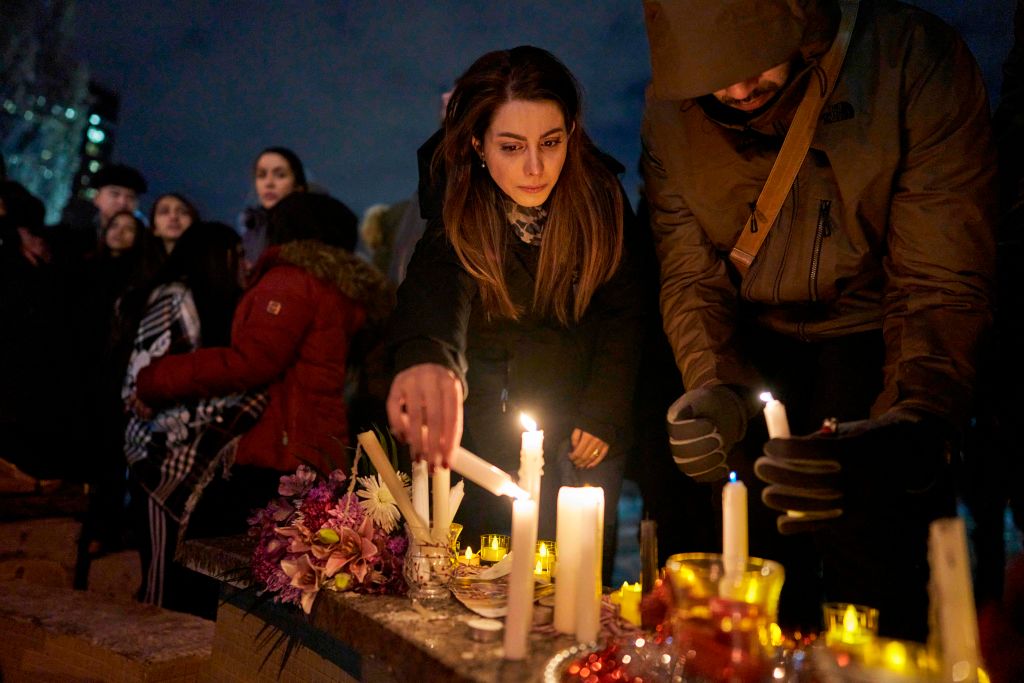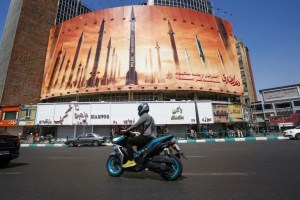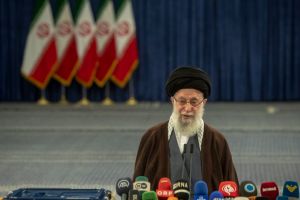After the Ukrainian crisis and the Iranian crisis, we now have the Ukrainian-Iranian crisis. For the second time in six months, Ukraine finds itself inexplicably — and inextricably — in the midst of a world-historical crisis that it had no part in crafting. As it was with Trump’s inquiries into Hunter Biden’s business activities, Kyiv is marooned politically and facing difficult and even unpalatable choices between warring opponents, neither of whom it wants to antagonize.
The American airstrike that killed Qasem Soleimani had threatened to set off a conflagration which many observers — 99 percent of them never having heard of the most interesting man in the Middle East — histrionically predicted as ‘World War Three’. Blessedly, that did not happen. The Iranians retaliated with ineffective missile counterstrikes on a pair of American bases in Iraqi, and President Trump’s gamble that Tehran would not want to risk a spiraling escalation of force looks to have paid off, at least in the short term. By Wednesday, with Trump ratcheting down the conflict, Washington DC and Tehran seemed to have climbed down the escalation ladder.
Instead, the price was paid by Ukraine International Airlines Flight 752, which was full mostly of Iranian citizens and Canadians from the Iranian diaspora. As the Iranians have now admitted, the plane was hit by an Iranian surface-to-air missile defense system several minutes after take-off. This was hours after Iran fired ballistic missiles on the American bases in Iraq.
In the immediate aftermath, it was widely theorized that Iran’s air defenses had mistaken the commercial plane for an American fighter jet and scrambled to retaliate. On Wednesday, Trump hinted at knowing what had happened without saying it outright. Trump loyalists pronounced Trump’s anodyne and sober presser to have been the most eloquent statement since Moses returned from the Mount Sinai. The Iranian regime, meanwhile, denied any knowledge or culpability and blamed the US. Iran’s state news agency released a propaganda movie showing Trump’s killing during an Iranian raid on the White House And Trump’s domestic opponents agreed, blaming him for the destruction of Flight 752.
Conflicting accounts emerged about Tehran’s willingness to give up the 737’s black box to Ukrainian investigators. The Iranian state seems to have quickly gathered up the fragments of the wreckage, and to have bulldozed the remains of the crash site. It took four days for the Iranians to admit that they had downed the jet — an admission probably forced from them by the mounting evidence of their guilt.
Ukrainian social media exploded with conspiratorial theorizing and foreboding expectations of the worst even before authentic information began to emerge from Western Intelligence officials. The spouses of the Ukrainian flight crew wept uncontrollably at a makeshift memorial and mountain of roses at Kyiv’s Borispyl airport. Ukrainian internet news portals ran shocking reports from the 45 Ukrainian experts who had arrived in Tehran to take part in the investigation. The faces of the 11 Ukrainian flight crew, all dead and all young, were inescapable.
To confirm the worst, Ukraine had to rely not on its international partners or the responsible Iranian aviation authorities but, like the rest of us, on ‘digital’ investigative units operating from open source materials found online. In 2015, organizations such as Bellingcat deployed cutting-edge technological methods to cut through the poisonous fog of Kremlin denials and disinformation regarding the downing of Malaysia Airlines Flight MH17 by a Russian BUK missile. Those methods have since become democratized. Every serious newsrooms now knows them, except this time that process can been completed in a day rather than over the course of weeks. Collectively, the denizens of the internet now form an amateur intelligence agency whose prowess rivals that of major state competitors.
In an unmissable and macabre parallel, this is the second time that a Russian-made missile has downed a passenger plane either belonging to Ukraine or over its airspace. The shooting down of Flight MH17 by the Russian army was the event that first turned the world’s attention to the Russian invasion of Ukraine, and which began to turn the tide of international public opinion against Moscow. There was also the grim precedent of an American warship, the USS Vincennes, accidentally shooting down an Iran Air commercial airline flight in 1988.
Ukraine’s president Volodymr Zelensky, it turned out, was on a covert New Year vacation in Oman, and dashed back from the Middle East to Kyiv. He has demurred from issuing strong statements of condemnation. Likewise, Ukraine’s foreign minister Vadym Prystayko has played down Tehran’s obvious lack of helpfulness and its coverup operation.
After the USS Vincennes accidentally shot down Iran Air Flight 655 in 1988, the US government paid $61.8 million in compensation to the families of the Iranian dead. Iran should now pay compensation to the families of those it killed on Ukraine Airlines Flight 752. Perhaps that would encourage Vladimir Putin to do the same after five years of denial, and come clean about the Kremlin’s culpability in the destruction of MH17.
Vladislav Davidzon is editor of the Odessa Review and European culture critic for Tablet.



















